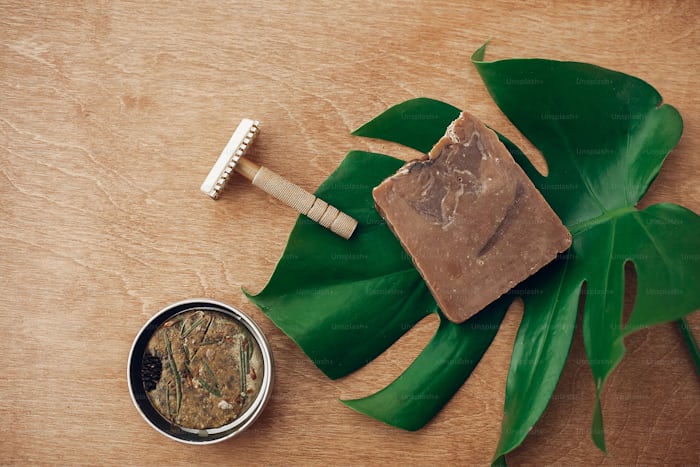Vitamin C serum has become a powerhouse in skincare routines across the globe. Known for its brightening and anti-aging properties, this skincare hero is a staple for anyone looking to enhance their skin’s health and appearance. But what makes vitamin C serum so special? How does it work, and what should you look for when choosing the right product for your skin type? In this comprehensive guide, we delve into everything you need to know about vitamin C serum, including its benefits, how to use it, and what to look for when selecting a product.
What is Vitamin C Serum?
Vitamin C serum is a skincare product that contains a potent concentration of vitamin C, a powerful antioxidant. Antioxidants are crucial in skincare because they help neutralize free radicals, which are unstable molecules that can cause damage to your skin cells. Free radicals are generated by external factors such as UV radiation, pollution, and stress, leading to premature aging, dullness, and skin damage. By incorporating a vitamin C serum into your skincare routine, you can help protect your skin from these environmental aggressors while also enjoying a range of other benefits.
The Benefits of Vitamin C Serum
- Brightens Skin Tone
One of the most celebrated benefits of vitamin C serum is its ability to brighten the skin. It inhibits melanin production, the pigment responsible for dark spots and hyperpigmentation. Regular use of vitamin C serum can help fade dark spots, acne scars, and sunspots, giving you a more even and radiant complexion.
- Reduces Signs of Aging
Vitamin C is renowned for its anti-aging properties. It stimulates collagen production, a protein that provides structure to your skin. As we age, collagen production decreases, leading to wrinkles and sagging skin. By boosting collagen levels, vitamin C serum helps reduce the appearance of fine lines and wrinkles, making the skin appear firmer and more youthful.
- Provides Antioxidant Protection
As an antioxidant, vitamin C helps protect the skin from environmental damage caused by free radicals. This protection is crucial in preventing premature aging and maintaining healthy, youthful-looking skin. Additionally, the antioxidant properties of vitamin C serum help repair damaged skin cells and promote skin healing, making it an excellent choice for those with sun-damaged or sensitive skin.
- Hydrates and Moisturizes
Many vitamin C serums are formulated with hydrating ingredients like hyaluronic acid, which can help retain moisture in the skin. Vitamin C itself can improve the skin’s natural barrier function, preventing water loss and keeping the skin hydrated and plump.
- Reduces Inflammation and Redness
Vitamin C has anti-inflammatory properties that can help reduce redness and inflammation in the skin. This makes it an excellent choice for those with acne-prone or sensitive skin, as it can soothe irritation and promote a clearer complexion.
How to Use Vitamin C Serum in Your Skincare Routine
Integrating vitamin C serum into your skincare routine is simple, but there are a few key steps to ensure you get the most out of this powerful ingredient:
- Cleanse Your Skin: Start by cleansing your face with a gentle cleanser to remove dirt, oil, and makeup. This will prepare your skin for better absorption of the serum.
- Apply Vitamin C Serum: After cleansing, apply a few drops of vitamin C serum to your face and neck. Gently pat the serum into your skin, avoiding the eye area.
- Moisturize: Follow up with a moisturizer to lock in hydration and keep your skin barrier healthy.
- Sun Protection: Since vitamin C can make your skin more sensitive to the sun, it is essential to apply a broad-spectrum sunscreen with an SPF of at least 30 every morning after using the serum.
For best results, use vitamin C serum in the morning to protect your skin from daily environmental aggressors. However, some people prefer to use it at night to enhance skin repair while they sleep. Experiment with both to see what works best for your skin.
Choosing the Right Vitamin C Serum for Your Skin Type
With so many vitamin C serums on the market, choosing the right one for your skin type can be overwhelming. Here are some factors to consider:
- Concentration of Vitamin C: Vitamin C serums come in various concentrations, typically ranging from 5% to 20%. If you are new to using vitamin C, start with a lower concentration to avoid irritation, especially if you have sensitive skin. Gradually increase the concentration as your skin builds tolerance.
- Type of Vitamin C: There are several forms of vitamin C used in serums, including L-ascorbic acid, sodium ascorbyl phosphate, and magnesium ascorbyl phosphate. L-ascorbic acid is the most potent form and is best for normal to oily skin types, while the other forms are more stable and better suited for sensitive or dry skin.
- pH Level: The pH level of a vitamin C serum affects its stability and effectiveness. L-ascorbic acid serums should have a pH of 3.5 or lower for optimal absorption, while other forms of vitamin C can be effective at a pH of 5-7.
- Packaging: Vitamin C is sensitive to light and air, which can degrade its effectiveness. Choose serums that come in dark or opaque bottles with airtight packaging to protect the product from oxidation.
- Additional Ingredients: Many vitamin C serums are formulated with other beneficial ingredients such as hyaluronic acid, vitamin E, and ferulic acid. These ingredients can enhance the serum’s effectiveness and provide additional hydration and antioxidant benefits. Look for a serum that complements your skin’s needs.
Potential Side Effects and Precautions
While vitamin C serum is generally safe for most skin types, some individuals may experience mild irritation, redness, or dryness, especially when starting a new product. To minimize the risk of irritation, introduce the serum gradually into your routine, starting with a lower concentration and increasing it over time.
It is also important to patch-test the serum on a small area of skin before applying it to your entire face. If you have sensitive skin or are prone to allergies, consult with a dermatologist before adding a new product to your routine.
DIY Vitamin C Serum: Is It Worth It?

There are many recipes online for DIY vitamin C serum, but making your own at home is not recommended. Vitamin C is a highly unstable ingredient that requires careful formulation and proper storage to maintain its potency and effectiveness. Additionally, homemade serums may not have the correct pH or concentration, which can lead to skin irritation or ineffective results. For these reasons, it is best to invest in a professionally formulated product.
Conclusion
Vitamin C serum is a versatile and effective addition to any skincare routine. Its ability to brighten, protect, and rejuvenate the skin makes it a must-have for those seeking a radiant and youthful complexion. By understanding how to use vitamin C serum and selecting the right product for your skin type, you can enjoy the myriad benefits this powerful ingredient has to offer. Whether you are dealing with dark spots, fine lines, or dullness, vitamin C serum can help you achieve your skincare goals and unlock your skin’s natural glow.
So, if you haven’t already, consider incorporating a vitamin C serum into your daily regimen and experience the transformative effects of this skincare superstar. Your skin will thank you!
By following these guidelines and choosing a high-quality vitamin C serum, you can enhance your skincare routine and enjoy healthier, brighter, and more youthful-looking skin. Remember to stay consistent and patient, as results can take a few weeks to become noticeable. Happy skincare!





